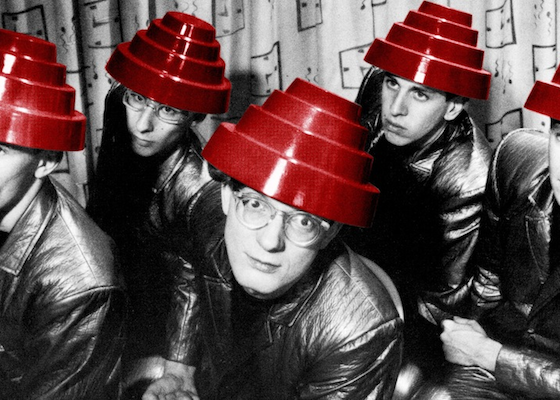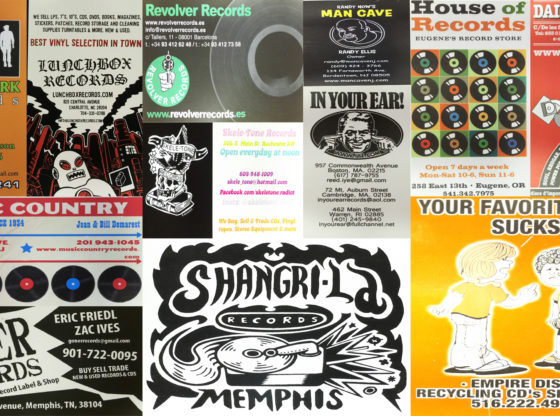So whats it worth then. There are many tools available to figure out what the record you are thinking of buying is worth, but the operative rule of thumb should always be its worth what someone will pay you for it. To help determine that, we provide the resources below.
Before you dive in, remember a few important rules. Record values are dependent on the condition of the record – both the vinyl itself and the sleeve or jacket. Records that are still sealed, and only records that are still sealed, are mint. Writing on the record, either on the sleeve or record itself (think the name of a prior owner) detracts from a record’s value, as do scratches. Sometimes a record is just dirty, and a cleaning can allow the record to play all the way thru. Warps are not good, but can get you a servicable copy of a rare record (while waiting for a better one) if the warp does not affect play. This will sometimes be denoted as warp nap or wnap. Water damage detracts from a record’s value. Here’s a link to a very helpful article on record grading On Grading Records from Rather Rare Records.com. This is from the great Neal Umphred who wrote the book (actually books) on record pricing published by Goldmine, referenced below and sitting on my record book shelves.
Which release of a record you own will also greatly impact a record’s value. First presses are typically the most sought after. Discogs provides a very helpful database of all releases of a particular record. You need to check carefully, as there are often many presses of a record, making it difficult to identify which you own. The cover can change, the label can change, and there can be a host of ways these changes can appear. Sometimes you need to look in the run off at the matrix numbers to tell what release you own. Some records came with various inserts – posters, games, lyric sheets etc. See if your copy still has its inserts or someone pasted them on their wall. Misprints and mistakes also happen, and can often impact value. You also need to see the record’s country of origin. Sometimes, a non-US press is more valuable, and sometimes its not. This article from Rare Records.net will give you additional ideas on what to look for to aid in determining which record you have.
Popsike is a website that lists countless records, and the price they sold for on various eBay auctions. The records are often pictured, and the site provides the eBay listing and the price the record sold for, complete with description of condition, label and pressing. An invaluable tool.
You can also use Discogs the great database program, but remember, they will only provide values of actual sales on their marketplace. The link will take you to a page of the Discogs site that will explain how you to use Discogs to give information on record values. As explained there, Discogs tracks sales of records in its marketplace. It provides information on the latest 30 sales as lowest, median and high. You can find this information by searching for the release you own in the database. On a PC the information is contained on the right hand side of the page. Remember, condition of sleeve and vinyl matters (this pricing information is not condition specific) and that you need to match the release you have against the database. Notably, most record sellers use this database to get an idea of a record’s value.
Another useful record value database is provided by Value Your Music.com. The site provides information on record values from “an archive of over 33 Million sold auctions.” The site does not inform where the auctions took place, but I believe they are eBay auctions.
Before the Internet, Goldmine magazine was one of the main places record collectors used to buy records. Sellers would advertise their records (either via auction or set sale) and the collector could pick and choose what he liked. The magazine also featured great articles on bands. Goldmine published a series of record price guides, authored/editted? by Neal Umphred and Tim Neely, which give extensive pricing information for records of various genres. These price guides are not online but used copies can be had on eBay. These guides include the Goldmine Price Guide to Collectible Record Albums (Neal Umphred), covering records from the 50s to 80s, Goldmine Record Price Guide (Tim Neely) Goldmine’s Price Guide to Collectible Jazz Albums (Umphred), and the Goldmine Standard Catalog of American Records, 1950 – 1975 (which has both albums and 45s) among others. Just remember, the price in the book is not necessarily the price its worth (and condition is important).
Hans Pokora with help from his friends has put together a series of books Record Collectors Dreams 1001 to 6001. Here’s a link to Record Collector Dreams online They are excellent, and provide pictures of rare and obscure 60s and early 70s psych, garage, progressive, beat, folk and rock albums you’ll never see, and an estimate of their value. In addition, these books cover records from bands that hailed all over the world. The books themselves are well worth searching for for the pictures of the album covers (all first pressings) alone, as well as the insight they will give you to great records from all over the world.
G45 contains a list of 300 rare 1960s garage singles. If you own one of these, keep it safe. Its worth alot. The site tells you about the record and its relative rarity, and gives information on both the number of releases still around and a brief review of the record itself.
And sorry, no, you will not get a lot of money for your used records by taking them to the record store. The price for the convenience of ‘take them all’ or having the store owner come to your house to look and perhaps buy is the funds you will get for your records. The store owner needs to make a profit too, no? If you want to get a better return, you will need to put in some effort. Selling on eBay or Discogs will enhance the return. Cleaning your records before you sell them will do the same.
Record valuing is not an exact science, and the marketplace can be very inefficient. This can make a particular record priced both too high or too low.
Record collecting is a great hobby. This is particularly true because you can enjoy your vinyl by playing it on your turntable.


